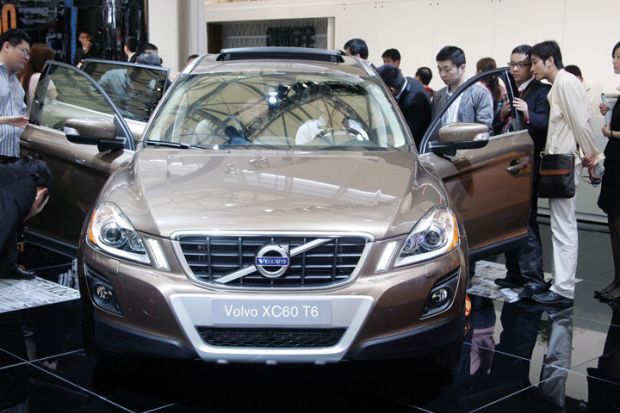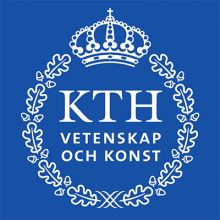“Sweden is a country of engineers and scientists,” reflected Sigbritt Karlsson, president of KTH Royal Institute of Technology, on her country’s famously practical nature.
To that list of Swedish world-beaters, you could add economists, pop music pioneers and, more recently, ridiculously successful technology firms – with Stockholm giving birth to more billion-dollar start-ups (known as unicorns) per capita than anywhere in the world except Silicon Valley. KTH – which produces about a third of all Sweden’s engineers – has certainly had a hand in this success, with Spotify founder Daniel Ek and Ericsson chief executive Börje Ekholm among its alumni, whose numbers include a long list of inventors and industrialists stretching back to the institution’s foundation in 1827.
“We’ve been a substantial part of Swedish industry through our research,” said Professor Karlsson, a 62-year-old polymer chemist, explaining how the world’s first modern refrigerator was invented by two KTH students in 1922, shortly before another student, Gustaf Larson, founded the Volvo automobile company in 1927.
With its rich industrial heritage, many might expect KTH to be reaping Stanford-like financial rewards from lucrative university spin-offs. Swedish law, however, prohibits universities from laying claim to any patents registered by its faculty.
Researchers can benefit from that, but so too can the institution. “Academics who might not normally consider KTH come to us because they can own their own inventions,” Professor Karlsson said.
Despite the limited financial returns it is allowed, KTH continues to support its students and staff with various start-up incubator programmes, including the chance to win investment of up to Skr250,000 (£20,100).
“We’re proud of our open collaboration with different companies,” said Professor Karlsson, who nonetheless plays down KTH’s pivotal role in Sweden’s success story. “Perhaps it’s really the climate, which is not so nice – in this weather, you have to be innovative to survive,” she added.
Next month, KTH will host Times Higher Education’s Innovation and Impact Summit in Stockholm, where issues of impact and research collaboration will be discussed by university leaders and business heads from Sweden’s top companies from 22-24 April.
There are concerns, however, that the kind of openness that Sweden has embraced might be exploited by those who do not have its best interests at heart. China’s rapid industrial rise has led some critics to question Sweden’s closeness to China over the years, having been the first Western country to recognise the new communist state in 1950.
With the fortunes of Volvo, H&M and IKEA – Sweden’s most iconic brands – heavily dependent on Chinese factories, some wonder whether Swedish industry and academia should have been so willing to offer its technical know-how to what is now a major economic rival.
“I think we may have been a bit naive,” said Professor Karlsson. “For years, we have been helping China develop, seeing the country as a developing nation. But that no longer holds true since its transformation into a major power,” she added.
“We need to pay attention to how the world is changing,” continued Professor Karlsson, reflecting that her “small country” could lose out by providing high-level technical education and research to China. “It’s a delicate situation which needs to be balanced because I’m not sure Volvo would have survived without its Chinese owners, but at the same time I think we need to be aware about political agendas [in relation to] the engineering education we are providing and the research collaborations we enter into,” she said.
Aside from some concerns about Sweden’s notorious research bureaucracy, Professor Karlsson seems fairly happy with the state of her sector – which remains tuition-free for domestic and European Union undergraduates while maintaining seven universities in the top 300 of THE’s latest World University Rankings.
One area where Professor Karlsson is keen to improve, however, is gender equality, with women accounting for just 18 per cent of academics and 34 per cent of students at KTH – ratios not uncommon in technology-dominated elite universities.
Nonetheless, as the university’s first female president, Professor Karlsson wants to do more to reduce that gender disparity. “We are losing women as they move up the system,” she admitted, noting with concern that female academics often disappear after having children, with 16 months’ parental leave available for each child in Sweden.
“I can understand they want to spend time with children rather than struggling with grant applications, but I think we can do more to help keep them in the system,” she said of the dearth of visible female scientific leaders.
As a mother of three – two of whom have PhDs from KTH, with the third in the final year of doctoral study there – Professor Karlsson is something of a role model.
POSTSCRIPT:
Print headline: Sweden must be ‘careful’ on Chinese ties, KTH head says
Register to continue
Why register?
- Registration is free and only takes a moment
- Once registered, you can read 3 articles a month
- Sign up for our newsletter
Subscribe
Or subscribe for unlimited access to:
- Unlimited access to news, views, insights & reviews
- Digital editions
- Digital access to THE’s university and college rankings analysis
Already registered or a current subscriber? Login










